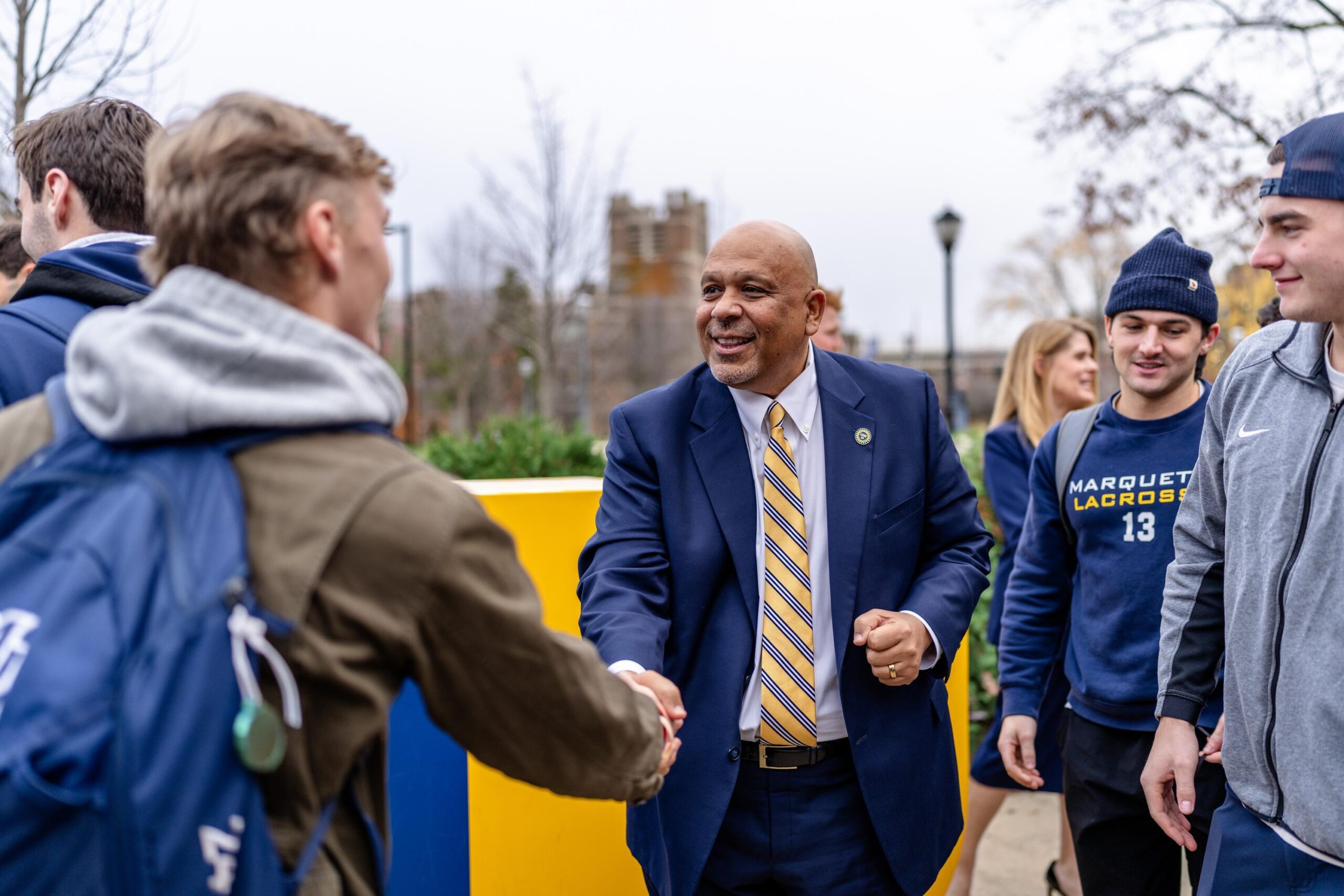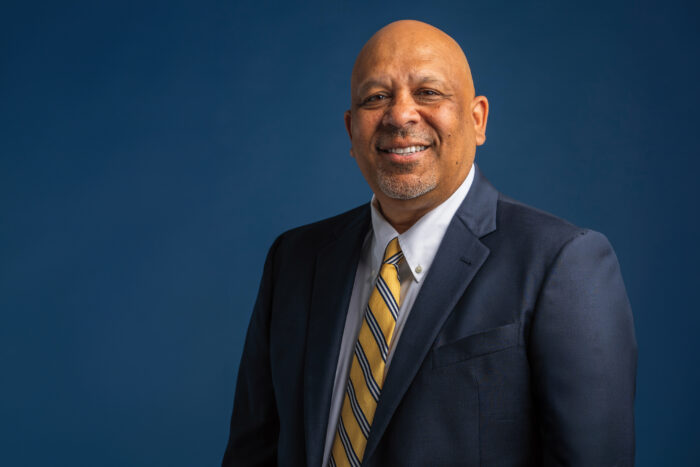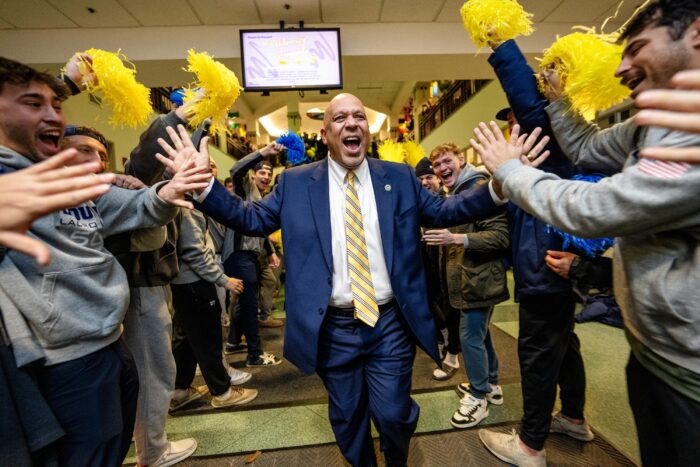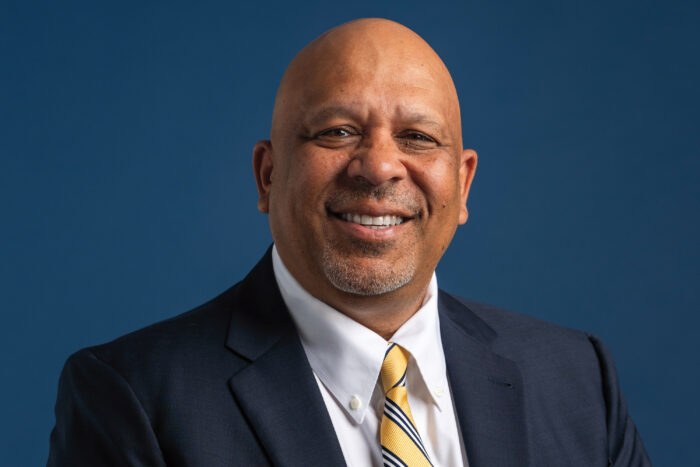Kimo Ah Yun calls his personal history an “underdog story.” He was one of the large number of young people across the United States who had the ability to do big things, but who came from circumstances where doing them was rare.
A child of parents who did not graduate from high school, a native of low-income Compton, Calif., someone who learned lessons about life from pumping gas. He became a first-generation college graduate who didn’t really know what grad school was, but who had mentors who put him on paths to a master’s degree, a doctorate, a professorship, a deanship, a provostship, and, now, the presidency of Marquette University.

This article originally appeared on the Marquette Law School Faculty Blog
Ah Yun thinks about all those who didn’t make it the way he has. During a “Get to Know” program at Marquette Law School’s Eckstein Hall on Jan. 17, he described his own path. “I never expected to be sitting in this chair next to you,” he told the program’s moderator, Derek Mosley, director of the Law School’s Lubar Center for Public Policy Research and Civic Education. But Ah Yun added, “I think about all the people who could have had that opportunity, and for some reason could not see it.”
He recalled a woman who was a schoolmate of his. She was “a phenomenally brilliant person,” he said. “She was smarter than every one of us in school,” he said. “But she never saw it. . . . If you don’t see the pathway, you can never get there. She could have done anything she wanted to, but she did not ever see a pathway for her.”

One of his roles as the 25th president of Marquette is to help more people get on that pathway and to help all students, regardless of their backgrounds, to become the best people they can be. To Ah Yun, that is the heart of Catholic, Jesuit education and the heart of what he was inspired to do by his close friend and predecessor as president, Michael Lovell, who died in June 2024.
Ah Yun told an audience of about 200 that getting an education so you can get a job is important, but that’s far from all Marquette wants its students to set as a goal. Jesuit education means “changing fundamentally who you are as a person and how you interface with the world.” It means making sure you have a moral compass that tells you what is right and what is wrong. It means growing to be someone who cares about others and who is engaged in helping others. “A Jesuit education, to me, is positioning you to have a great life” and to make everyone around you better, Ah Yun said.
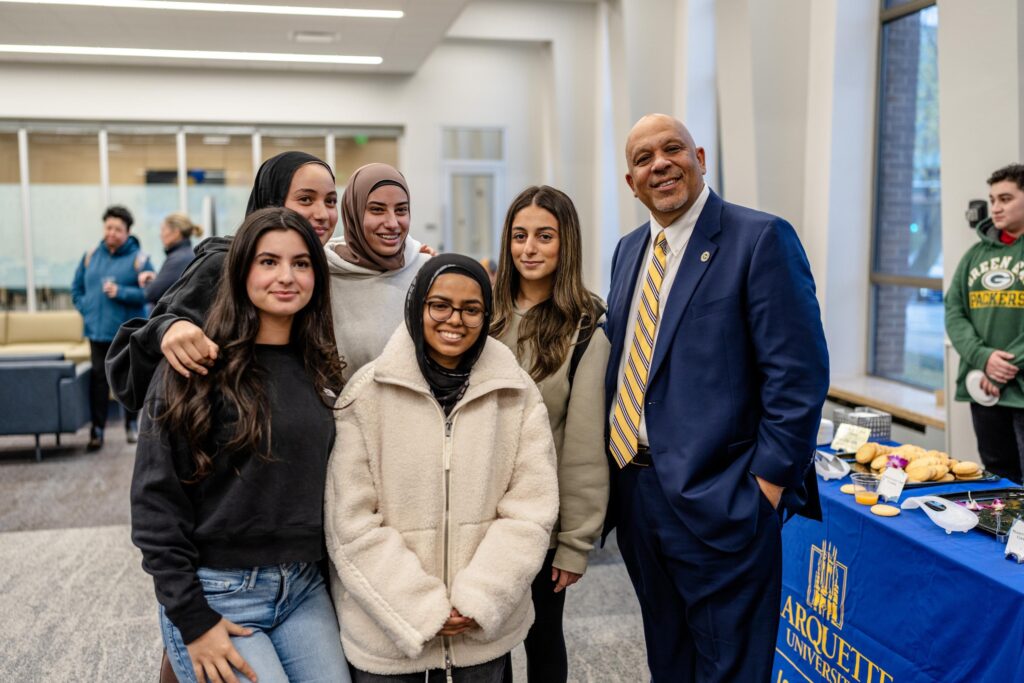
Of all the universities in America, Marquette, he said, has the highest percentage of students who are involved in public service. That was at the top of Ah Yun’s list of positive things about Marquette. Asked by Mosley what he most relishes about his job as president of Marquette, Ah Yun said, “Telling our story. We have a great story.”
But he also said that, like all universities, Marquette is facing headwinds as the world of higher education changes, including demographic trends that point to a smaller pool of students in coming years. “We’re going to have rethink things,” he said. While still focusing on students, Marquette is going to have to pull back on some things. For colleges as a whole, including Marquette, there will be “hard decisions, hard times, very disruptive,” Ah Yun said. He pointed to colleges in the United States that have closed in the last several years and mentioned Cardinal Stritch University in Fox Point as one of them.
Ah Yun’s path to Marquette is in itself a colorful story, even without reference to his challenging earlier years. He had been a professor in communications for two decades at California State College, Sacramento, where he got his bachelor’s degree. “I never thought I would ever leave there because it was home,” he said. But he was contacted by representatives of a search firm that was aiming to find a new dean for Marquette’s Diederich College of Communication. He put them off, saying he wasn’t interested. But they were persistent. They convinced him to at least visit Marquette. He agreed but, he said, “I didn’t bring a suit,” because he didn’t intend to take the job. And the night before his interview, he went to a Marquette basketball game rather than prepare for the next day’s session.
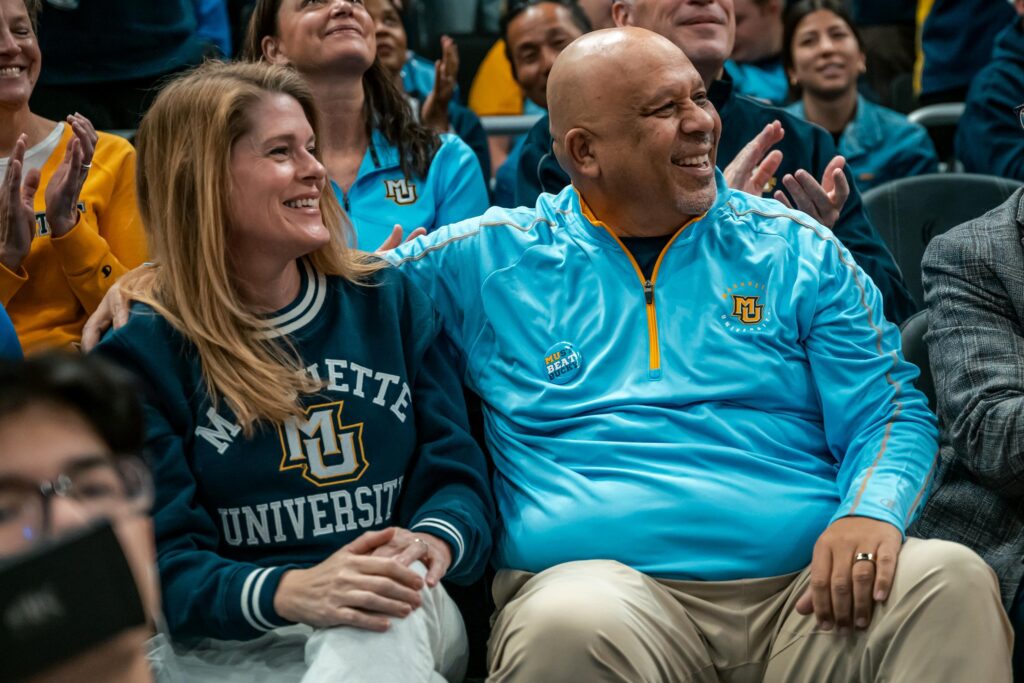
He described aspects of his conduct during the interview as somewhat “snarky.” He said, “I wasn’t trying to impress anyone.” But he was invited back for a second interview. He told the search firm representative he had no interest in the job and had a lot of personal reasons to stay in California. But they convinced him to come back and to bring his wife along. He began to take it more seriously.
The key turning point was when Ah Yun was taken to meet Lovell. “He was inspiring,” Ah Yun said. “We were aligned in thinking about a student-centered university that was focused on transforming the lives of our students.” His attitude changed, “I knew I could come work for Mike,” he said. And it went beyond that: “I said I could be a better person if I worked with a guy like that.”
Ah Yun became the communication dean and later the interim provost of the university and then the provost in 2019. After Lovell died, Ah Yun was named interim president and, in November 2024, in his ninth year with Marquette, he was named president.
Marquette needs to stick to its core competencies, he said. It’s not a university that aims to succeed by building online education. It’s an in-person university. “We engage and transform people,” he said. Marquette’s leaders will need to do things ahead that show how they care for the institution itself—but also show that the university has “a foundation where we teach people to love one another.”
Video of the one-hour conversation with Ah Yun may be viewed by clicking here.
